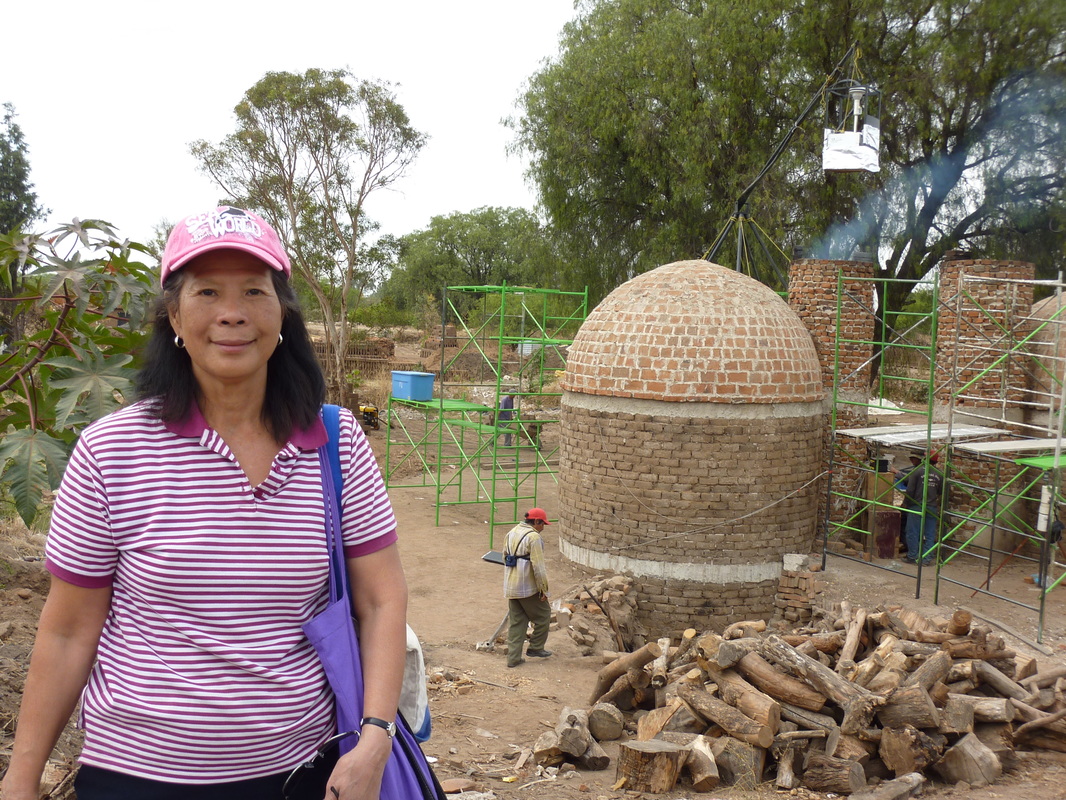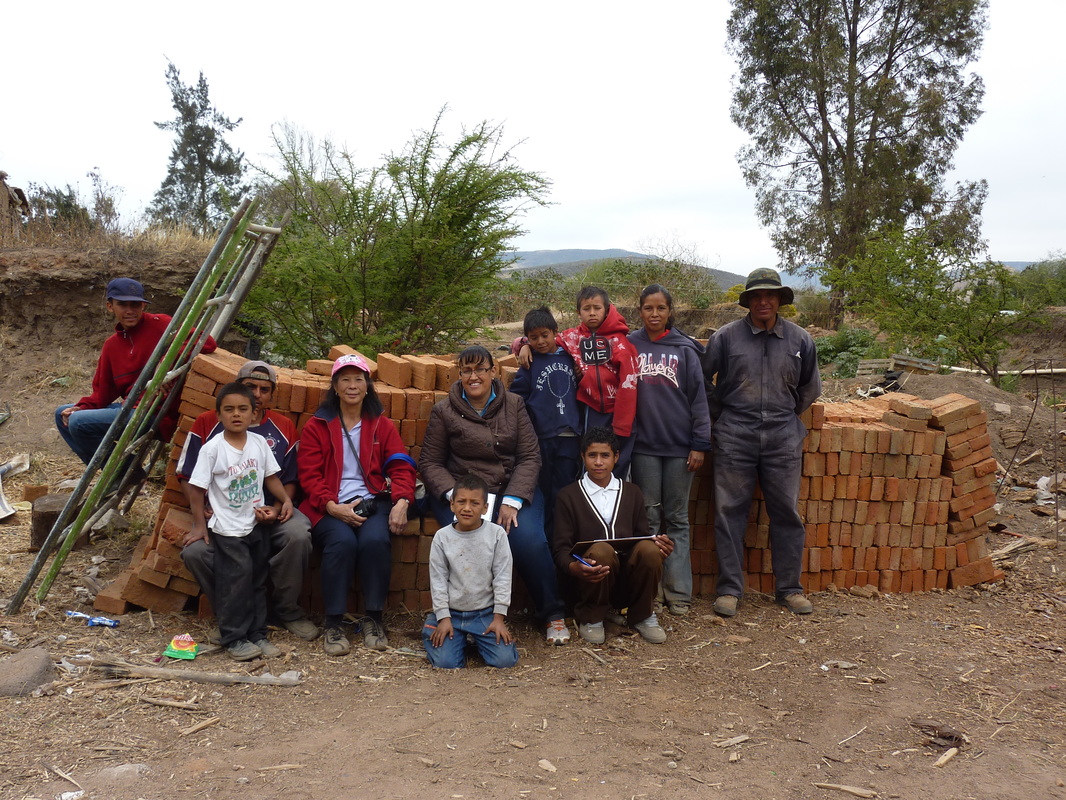Luisa T. Molina
Interview Posted By: Ashley Smith
1. Can you tell us a little about your background? i.e., Where you grew up, what education do you have, a summary of your resume, did you always want to do what you are doing now, when did you start to become interested in STEM, what internships/ volunteering
I was born in the Philippines. I have always been interested in science, especially doing the chemistry experiments in the laboratory. I grew up in Manila, one of the megacities of the world with severe air pollution problems. One of my sisters has asthma. So I was also very interested in air pollution and its impacts.
After finishing high school in Manila, I had the opportunity to join my oldest sister in Montreal and enrolled at McGill University in Honours Chemistry. I interned in several laboratories during the summer. Subsequently I went to the University of California at Berkeley and received my doctoral degree in Chemistry. I have been involved with scientific research since them.
During the 1980s and 1990s, I was involved with the chemistry of stratospheric ozone depletion and demonstrated experimentally a new reaction sequence, which explains how chlorofluorocarbons (CFCs) caused the Antarctic ozone hole. Recently I initiated a multi-disciplinary project involving an integrated assessment of air pollution in megacities, aimed at improving the environmental decision making process through education and the better use of scientific, technical, and socio-economic understanding. Currently, I am investigating the impacts of Short-lived Climate Pollutants (SLCPs) on air quality and climate.
2. What exactly IS your job? What do you do on a day to day basis?
In addition to continue doing scientific research as mentioned above, I am also an administrator of a non-profit organization engaging in collaborative research related to energy and the environment, as well as outreach activities to raise awareness.
3. How does STEM relate to your job? How do you use the information you learned from your degree in your job?
I am a physical chemist by training, specifically molecular spectroscopy and chemical kinetics. I have applied the information I learned from my degree to addressing environmental problems, in particular with the chemistry of stratospheric ozone depletion and urban air pollution - doing experiments in the laboratory and measurements in the field, and coming up with results that improve understanding environmental issues.
4. Have you faced any discrimination/ challenges being a woman in a stem field? If so, how did you deal with it? Do you have any advice for up and coming women in STEM?
I have not faced any discrimination/ challenges because of my gender.
5. What is the best and worst part of your job? What do you look forward to in your job on a day to day basis? What do you wish you could change?
The best part of my work is doing what I have always enjoyed and at the same time contribute to understanding the environmental issues.
The worst part – I am overcommitted sometimes. I need to manage my time better.
6. How do you balance your work and personal life? Any secrets or advice you’d like to share?
I worked part-time for a few years when my son was growing up and did some volunteer work at his schools.
7. What do you define success as?
I believe success means enjoying what you are doing, and be satisfied with what you are capable of doing.
8. What is one personality trait that you think is universally important for a successful career?
Enthusiastic - interested in what you are doing, be optimistic and persistent.
9. Who was a mentor to you throughout your career? (can be more than one!) What did they teach you? How did they impact your life?
I learned a lot from my graduate advisor not only in scientific research but also in social responsibility (education and outreach).
10. What do you think is the best advice you've ever received ? What advice would you give your younger self if you had the chance? What’s one piece of advice you can pass on to us?
Scientific research is fascinating and can be very rewarding -- help improve our quality of life.
I was born in the Philippines. I have always been interested in science, especially doing the chemistry experiments in the laboratory. I grew up in Manila, one of the megacities of the world with severe air pollution problems. One of my sisters has asthma. So I was also very interested in air pollution and its impacts.
After finishing high school in Manila, I had the opportunity to join my oldest sister in Montreal and enrolled at McGill University in Honours Chemistry. I interned in several laboratories during the summer. Subsequently I went to the University of California at Berkeley and received my doctoral degree in Chemistry. I have been involved with scientific research since them.
During the 1980s and 1990s, I was involved with the chemistry of stratospheric ozone depletion and demonstrated experimentally a new reaction sequence, which explains how chlorofluorocarbons (CFCs) caused the Antarctic ozone hole. Recently I initiated a multi-disciplinary project involving an integrated assessment of air pollution in megacities, aimed at improving the environmental decision making process through education and the better use of scientific, technical, and socio-economic understanding. Currently, I am investigating the impacts of Short-lived Climate Pollutants (SLCPs) on air quality and climate.
2. What exactly IS your job? What do you do on a day to day basis?
In addition to continue doing scientific research as mentioned above, I am also an administrator of a non-profit organization engaging in collaborative research related to energy and the environment, as well as outreach activities to raise awareness.
3. How does STEM relate to your job? How do you use the information you learned from your degree in your job?
I am a physical chemist by training, specifically molecular spectroscopy and chemical kinetics. I have applied the information I learned from my degree to addressing environmental problems, in particular with the chemistry of stratospheric ozone depletion and urban air pollution - doing experiments in the laboratory and measurements in the field, and coming up with results that improve understanding environmental issues.
4. Have you faced any discrimination/ challenges being a woman in a stem field? If so, how did you deal with it? Do you have any advice for up and coming women in STEM?
I have not faced any discrimination/ challenges because of my gender.
5. What is the best and worst part of your job? What do you look forward to in your job on a day to day basis? What do you wish you could change?
The best part of my work is doing what I have always enjoyed and at the same time contribute to understanding the environmental issues.
The worst part – I am overcommitted sometimes. I need to manage my time better.
6. How do you balance your work and personal life? Any secrets or advice you’d like to share?
I worked part-time for a few years when my son was growing up and did some volunteer work at his schools.
7. What do you define success as?
I believe success means enjoying what you are doing, and be satisfied with what you are capable of doing.
8. What is one personality trait that you think is universally important for a successful career?
Enthusiastic - interested in what you are doing, be optimistic and persistent.
9. Who was a mentor to you throughout your career? (can be more than one!) What did they teach you? How did they impact your life?
I learned a lot from my graduate advisor not only in scientific research but also in social responsibility (education and outreach).
10. What do you think is the best advice you've ever received ? What advice would you give your younger self if you had the chance? What’s one piece of advice you can pass on to us?
Scientific research is fascinating and can be very rewarding -- help improve our quality of life.


